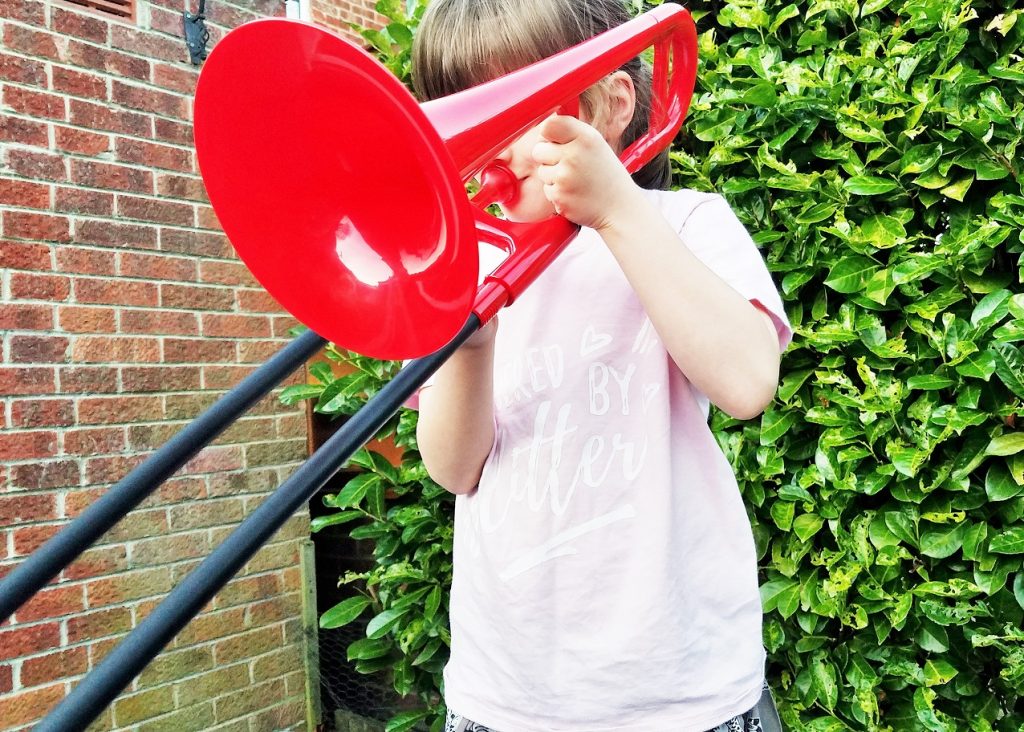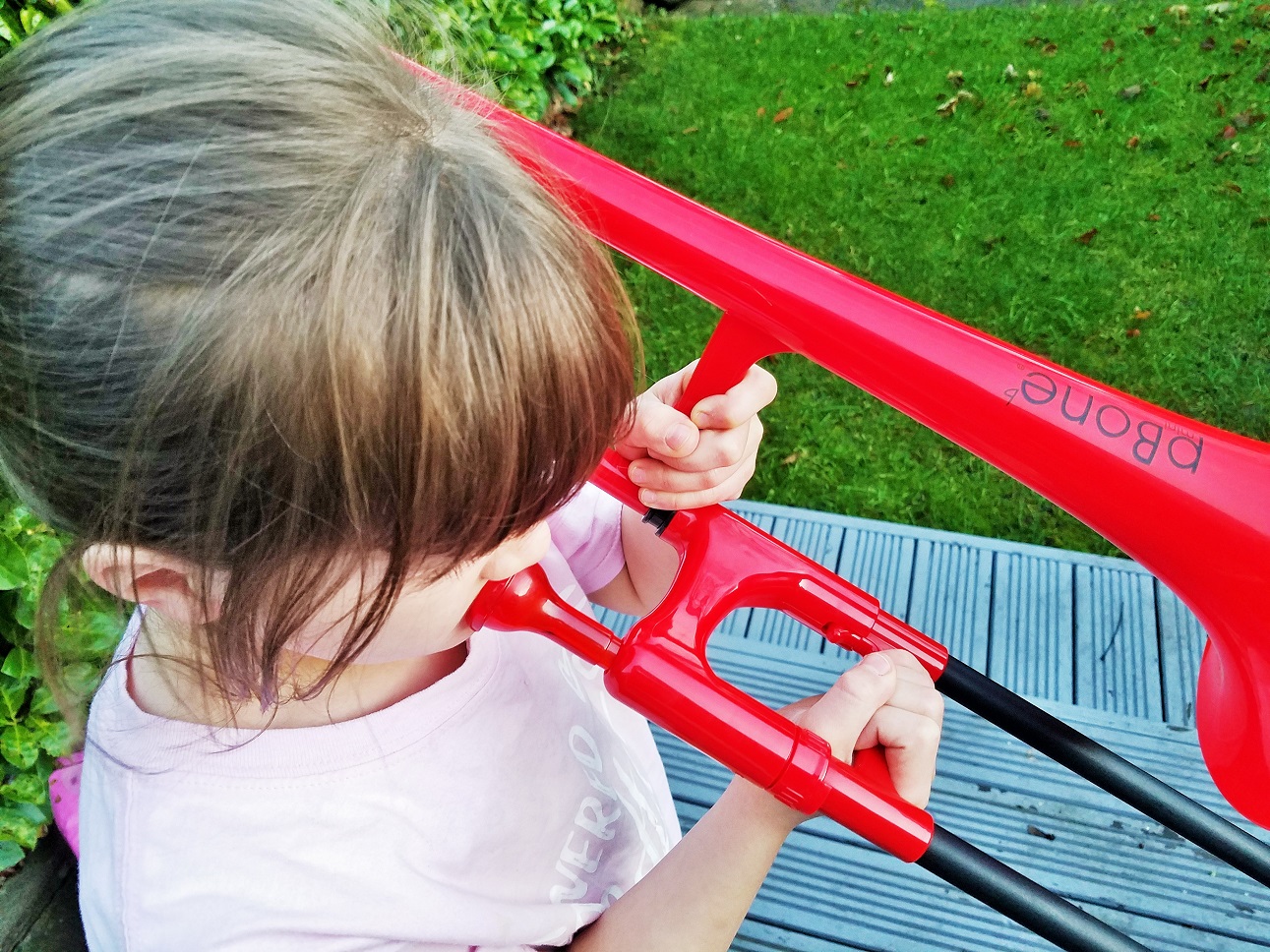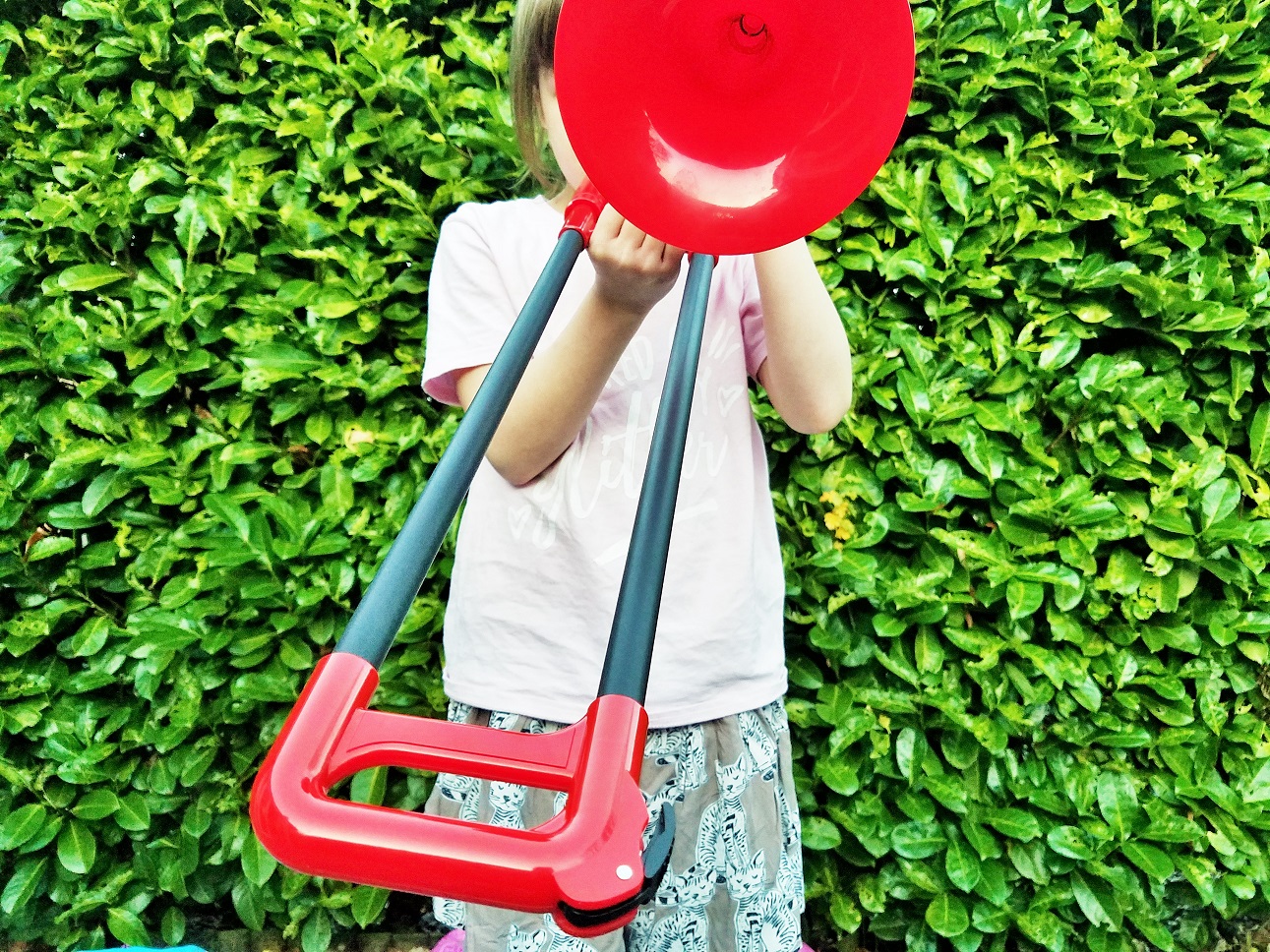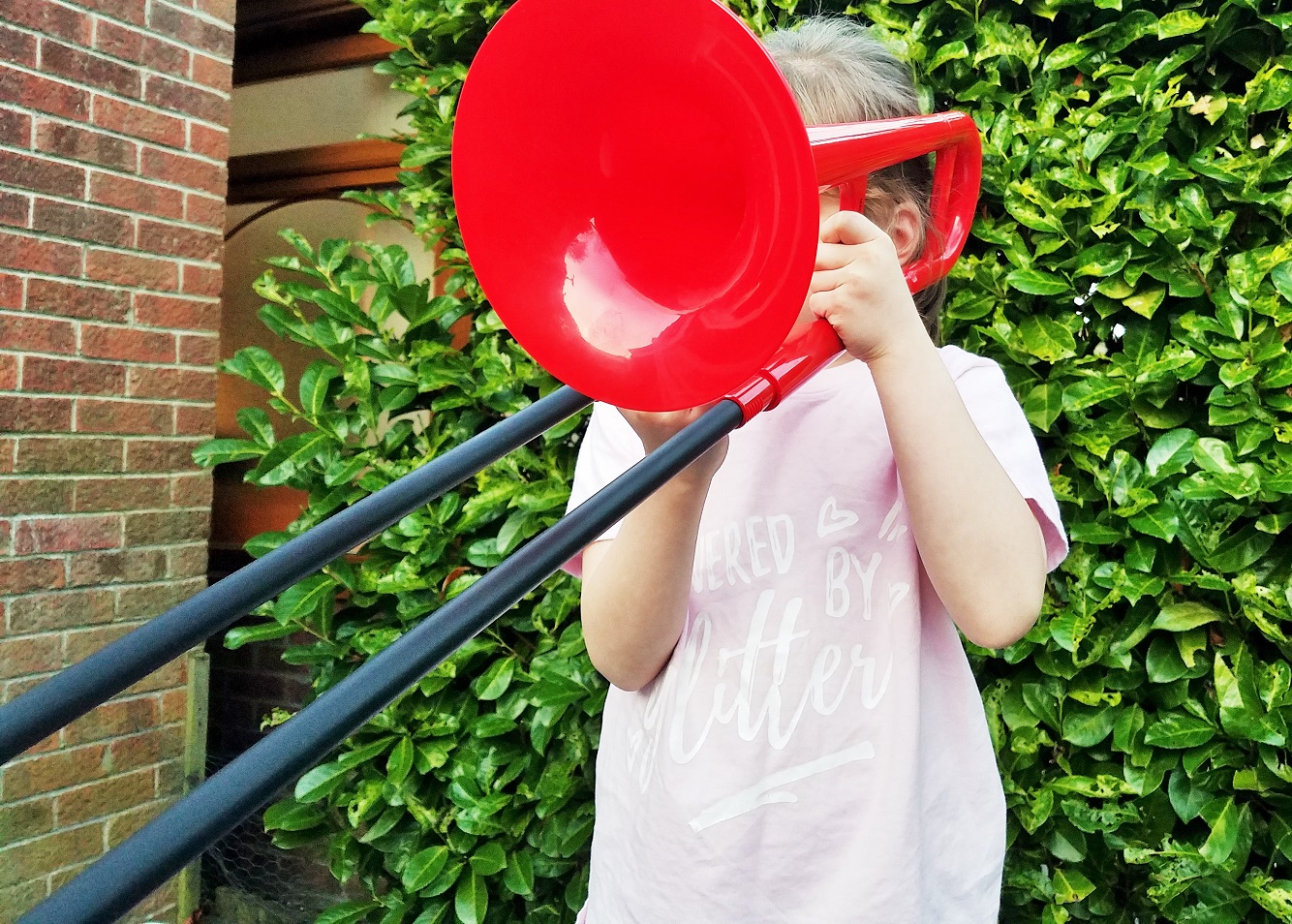
I’m All About That Brass, No Treble!
Collaborative Post
My big girl (6) started learning an instrument this term. We are a very musical family so it was inevitable that Jenny would eventually want one of her own. And she finally decided on the brass family.
If your child is interested in learning an instrument, then keep reading – this post is going to be full of useful information!
Brass Instruments
Brass instruments are instruments traditionally made out of brass. Here are a few of the most common ones:
- Trumpet
- French Horn
- Trombone
- Tuba
Brass instruments are very versatile and play a wide variety of music. To make a sound, you have to blow into the mouthpiece with your lips pressed lightly together (a bit like blowing a raspberry). They are used in orchestras, marching bands, and jazz groups.

pBone Mini
Jenny opted for the trombone. To change notes on a trombone, you use a “slide” which makes the instrument longer or shorter. This means it can be a difficult instrument for young children to learn – they are limited by how long their arms are.
It is recommended to wait until a child is about 9 or 10 years old before learning the trombone so that their arms are long enough and they have their adult front teeth.
However, we discovered the pBone Mini.
This is a smaller trombone that is great for children who would struggle to reach on a normal Bb-sized trombone. It is made from plastic and fibreglass so it is lighter, but still produces the same great sound. It is also much cheaper at around £105. Check out our pBone Mini review for more info on this.
To be honest, I think Jenny is still a little small as she struggles to reach the furthest notes. I would probably wait until 7 or 8 even if you’re using a pBone Mini.
I have been teaching Jenny using the Music Marvels tutor book. This has been great and includes lots of different tasks such as writing notes, musical challenges, and short tunes with downloadable backing tracks. The variety really helps to break the lesson up.
However, even though I have lots of experience teaching music, Jenny most enjoys her weekly brass band session at our local music school. Here, she gets to learn with other children and perform as part of a group. I had expected it to be really expensive but actually, it was free for the first term, and only £38 per term after that (working out at just £3.80 per week).
If your child is wanting to learn, I would definitely recommend seeing what is available through your school or local music school.

The advantages of playing a music instrument
Music is a great skill to have and it can have a big impact on development, schooling, and confidence. I’d like to finish with a quick run-down of some of the perks of learning to play a musical instrument.
- Enjoyment – it’s fun!
- A way to process emotions – music can helps us express our feelings when we can’t find the words
- Improved maths capabilities – music is heavily based on mathematical principles and reasoning
- Team work – playing in a band teaches you to rely on others and work together
- Increased confidence – music is often performed and being given the opportunity to play to to an audience from a young age can improve confidence and presenting skills
- Opportunities – I’ve played for school assemblies, birthday parties, weddings, mayor inaugurations, a bishop’s garden party, even in Disney Land!
- Listening skills – musicians need to learn to listen carefully to their band mates to create a blended sound
- Memory skills – musicians often play from memory even when they have music, continually committing phrases to memory so they can look ahead in the music to see what is coming up
- Boost self-esteem – it feels great when you play well or learn something you thought was too difficult
- Multi-tasking – musicians are reading lots of different symbols all at the same time, as well producing the correct notes, listening to the other players, and following the conductor
- Discipline – it takes dedication to learn an instrument and you really have to be disciplined and make sure you practice
- Organisation – from remembering to go to your music lesson (if it’s in school time), to making sure you have the right music, there are lots of opportunities to learn self-organisation
- Hand-eye-coordination – every symbol gives the musician new information and they need to reproduce that information on their instrument
- Leadership skills – solo instruments (like brass) are usually practiced with a piano to accompany, meaning the soloist must take the lead and direct the accompanist
- It gives focus – music is a hobby that is useful and varied
- Evaluation skills – musicians constantly analyse their performances and work out how to improve
- Creative – written notes are like the words written in a book – they only come alive when you deliver them with expression

Did you ever learn an instrument? Or do you wish you’d learnt one? What is your favourite musical instrument? Let me know in the comments section below – I always read them all!
Disclosure: This post is sponsored by pBone Mini. All opinions are my own. For more info, please see my disclosure policy.
Linked to:


I’m gutted because N is so far refusing to learn an instrument. He’s old enough to now be able to learn through school, but the only inclination he had was asking if I could teach him the piano. I play but I don’t think I’d be able to make it fun and enjoyable for him #sharingthebloglove
I’m so passionate about children learning to play an instrument – it teaches so many skills which really help them in life. It’s so sad that so many schools have completely eliminated music and it’s up to parents to pay for lessons now. I studied music up to Masters level and it taught me so much – I really hope my children inherit that love. Brass is a great option, and this sounds like a wonderful way to introduce them to it a little bit earlier than normal – good luck to Jenny with her progress! Thanks for joining us at #SharingtheBlogLove
That’s lovely that she has found something that she loves. We’re not a musical family, but I would love my girls to learn an instrument as they get older. Thank you for joining us at #SharingtheBlogLove
My instrument is a piano/electric keyboard. I have also tried to play a ukelele. And I love all your learnings for music and great tips.